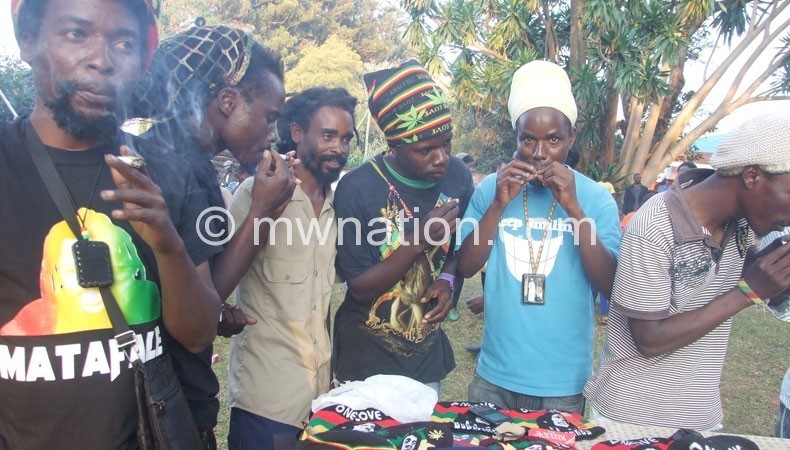Decolonising the mind
Musician Bob Marley may be the most well known Rasta to have lived. His music, interwoven with Rastafari culture, is known, to some extent, to have spread the culture across the world—Malawi inclusive.
Richard Mangwaya from Limbe in Blantyre is a staunch follower of the movement that originated in Jamaica, where most of the black population had originally been slaves forced from Africa to work.

In fact, he calls himself Ras Rich.
On a daily basis, he wakes up early to make beaded jewellery, slip-ons and other accessories for sale along lakeshore districts of Mangochi, Salima and Nkhata Bay.
Sometimes, he takes advantage of the reggae shows across the country where, he says, sales are also favourable.
“This is not just business. It is my way of life,” he says.
Culture, as most people know it, is defined as the society’s way of life. It encompasses food, clothing, religious beliefs, language, music and lineage, among other aspects.
Rastafari movement, according to www.important.ca, emerged in the early 1930s, arising from an interpretation of Biblical prophecy.
Rastas see themselves as conforming to a vision of how Africans should live, reclaiming what they see as a culture stolen from them when they were brought on slave ships to Jamaica.
The name Rastafari is taken from Ras Tafari, the title Ras and first name Tafari Makonnen of Haile Selassie I before his coronation.
In Amharic, Ras, literally ‘head’, is an Ethiopian title equivalent to prince or chief, while the personal given name Täfäri (teferi) means one who is revered.
As a Rasta himself, Mangwaya uses his business to preserve his Rastafari culture.
“The items I make are traditional in nature. People of other cultures, mostly the Whites, like them. They are interested in learning about our culture,” he says.
Mangwaya says Rastafari culture is the answer to questions that arise as to what constitutes Malawian culture.
“All Africans are Rastas because they were born such. But the problem is that slave trade eroded this culture, thereby adopting European culture. For example, we embraced Christianity which is a foreign religion,” he argues.
He says Rastafari movement aims at decolonising minds of Africans from embracing European culture at the expense of theirs.
“Europeans colonised our minds such that Africans look down upon their own Rastafari culture. This makes European culture look superior. Take for example food.
“We abandoned our local foods and embraced the artificial or hybrid ones which are not keeping us any healthier,” he observes.
He says the only way Africans can reclaim their culture is by abandoning the foreign one[s].
“As Africans, we are natural beings. We need to look natural and make use of our local materials. This will make us look unique and foreigners will be attracted to our culture,” he advises.
However, contrary to widespread beliefs, not all Rastafari smoke weed (Indian hemp). It is, in fact, optional for the Rastas.
Due to this misconception, some people are attracted to the idea of being a Rastafari to have a religious excuse to smoke chamba.
That is why, among the Rastas community in Malawi, the idea of legalising chamba excites them.
“It is a healing of the nation. The constitution of God legalises chamba. But since we follow the constitution made by man, modelled on Britain or Whites, chamba is criminalised. This comes back to our point that we need to decolonise our minds.
“Had it been that we, Africans, followed our own culture and formulated our own constitution, cultivation and sale of chamba would have been legal in Malawi,” says Mangwaya.
He advises government to engage experts on the issue and interested parties in legalising the plant.
“Otherwise the country will continue suffering in abundance. You think God just created it for nothing? It can’t be. People all over the world come here to buy the plant illegally. Why can’t we legalise it so that government can benefit through foreign exchange?” he wonders.






That’s a great thought. I really wonder why can’t we think for ourselves. instead we think along the lines of the coloniser. We have to think and plan for ourselves and for our benefit.